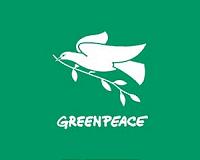| . |  |
. |
Tokyo (AFP) Sept 27, 2010 Japan demanded Monday that China pull back two fisheries patrol boats from near a disputed island chain that is at the centre of the worst diplomatic row in years between the Asian giants. Tokyo also summoned Beijing's ambassador to demand regular consular access to four Japanese nationals whom China detained last week amid the ugly spat for allegedly filming a military facility. Japanese media reported Monday that China's foreign ministry had rejected a request from Tokyo's ambassador to Beijing for a meeting over the issue. The latest developments came days after Japan freed a Chinese fishing boat captain, a move which failed to ease the escalating tensions and was met by China with a demand for an apology from its traditional Asian rival. The dispute was sparked on September 8 when Japan's coastguard arrested the skipper on suspicion of intentionally ramming two of its patrol vessels in a chase near the disputed islands. Amid the rising bad blood, Japan's top government spokesman, Chief Cabinet Secretary Yoshito Sengoku, on Monday said Tokyo would ask Beijing to pay for the damage to the coastguard boats. China has called the skipper's arrest invalid and illegal, arguing that the islands have been part of China since ancient times. The islets, known as Senkaku in Japan and Diaoyu in China, lie in an area between Japan's far-southern Okinawa island and Taiwan that has rich fishing grounds and is believed to contain oil and gas reserves. On Monday, Sengoku said fresh trouble was brewing in the area. Two Chinese vessels, he said, "are nearing the waters around the Senkaku islands but have not entered Japanese territorial waters, as coastguard vessels are on guard against their entry". Japan had already asked China four times to withdraw the ships from near the islands, he told a regular news conference. An official with the China Fisheries Law Enforcement Command told AFP that two ships had set sail last Thursday for the area. China's foreign ministry had no immediate comment on Japan's demand for them to leave. With relations between the Asian giants at their lowest level in years, Japan on Monday again urged its neighbour to do its part to repair ties. "Right now, the ball is in China's court," Sengoku, the right-hand man to Prime Minister Naoto Kan, said Monday morning, stressing the need for healthy ties between the world's second and third biggest economies. Beijing has lodged a series of diplomatic protests, snubs and threats and -- according to industry sources -- halted crucial rare earth mineral exports to Japan. China was Monday still holding the four Japanese nationals -- employees of a company working on a bid to clean up wartime-era Japanese chemical weapons -- after detaining them last week for allegedly filming a military installation. Japan's Foreign Minister Seiji Maehara on Monday summoned the Chinese ambassador, Cheng Yonghua, to demand regular access to the four. "Minister Maehara asked for continuous meetings with the four Japanese as well as a swift handling of the case," the ministry said in a statement, adding that the ambassador had said he would relay the message to Beijing. China's foreign ministry turned down Japanese Ambassador Uichiro Niwa's request for a meeting about the detained Japanese nationals, Kyodo News said, quoting diplomatic sources in Beijing. Japanese media reports said Prime Minister Naoto Kan was considering attending a meeting of Asian and European leaders next week in Belgium, in an attempt to meet with Chinese premier Wen Jiabao and smooth relations between the two countries. But Kyodo News said the meeting would be hard to arrange, citing a senior Japanese government official. As the dispute has escalated, Washington -- which openly worries about China's growing military muscle -- has reaffirmed its commitment to a half-century-old security alliance with fellow democracy Japan. The United States, long the dominant military power in the Pacific, has also voiced support for Southeast Asian nations that have had their own territorial rows with the regional giant China. Sengoku, asked how Japan would deal with China's new assertiveness in the East China Sea, told reporters: "It is all about how China realises its peaceful rise in international politics." He stressed that both sides need to strengthen what they call their mutually beneficial relationship based on common strategic interests. In Beijing, Russian Foreign Minister Sergei Lavrov on Monday called on China and Japan to "seek compromises" in the dispute. "There is a need to directly find agreements, seek compromises," Lavrov told reporters travelling with Russian President Dmitry Medvedev, who is on a three-day visit to China. burs-si-kh/apj
Share This Article With Planet Earth
Related Links Powering The World in the 21st Century at Energy-Daily.com
 Greenpeace restarts protest on North Sea drill ship
Greenpeace restarts protest on North Sea drill shipLondon (AFP) Sept 27, 2010 Greenpeace blocked an oil drilling ship in the North Sea with swimmers and speedboats a day after a court ordered protesters to unchain themselves from the vessel, the group said Monday. Activists for the environmental group had boarded the Stena Carron ship operated by Chevron and anchored off the Shetland Isles last week, but the oil giant won a legal ruling ordering them to leave on Satur ... read more |
|
| The content herein, unless otherwise known to be public domain, are Copyright 1995-2010 - SpaceDaily. AFP and UPI Wire Stories are copyright Agence France-Presse and United Press International. ESA Portal Reports are copyright European Space Agency. All NASA sourced material is public domain. Additional copyrights may apply in whole or part to other bona fide parties. Advertising does not imply endorsement,agreement or approval of any opinions, statements or information provided by SpaceDaily on any Web page published or hosted by SpaceDaily. Privacy Statement |